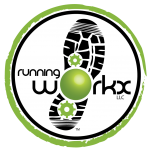Why A Running Coach?
A lot of people might ask why do I need a personal running coach? Why not? It’s a common misconception that running coaches are only for the elite amateur or professional athlete. On the contrary, a good running coach can be a benefit to all runners, especially beginners and novices. Unlike the personal fitness training industry today where nearly everyone has heard of or worked with a personal trainer, the existence and use of running coaches in a non-athletic team environment is still little known and understood. In fact, some would say that the availability of run coaches for the average recreational runner is still a best-kept-secret.
As an endurance sport, distance running requires an investment in your time and effort. No doubt, time is our most valuable asset, especially in today’s fast-paced culture, where balancing personal with family or work responsibilities can be challenging. Wouldn’t it make sense to get the most out of the time and effort you invest in your running? Think of having a personal running coach as making a long-term investment into your running, where the return is progress, efficiency, convenience, knowledgeable guidance, a lowered risk of injury and burnout; and of course let’s not forget the side benefits of better health/increased fitness/improved weight control, and the all important stress relief.
If you are an older runner or novice, there’s even more reasons to consider a personal running coach to help you continue to enjoy your running and extend your longevity in the sport. A coach experienced in working with aging runners can help you minimize the risk of self-inflicted injuries stemming from training mistakes, lower limits and capacities stemming from the normal aging process, physical/medical related ailments, not emphasizing adequate recovery, and not being pragmatic about adjusting expectations and goals.





But Running Is So Simple
Although running is considered one of the simplest and most straight forward activities that we can engage in today, we need to keep in mind that “distance running” is definitively an endurance sport. Like so many things that appear “simple”, there’s often much more to something than meets the eye. In the case of distance running, this apparent simplicity often belies a milieu of intricacies and interrelated components that must come together over time to enable us to run far, fast, and efficiently without hurting ourselves.
As kids, we ran a lot, playing tag, racing to the swings, and engaging in other sports that involved some type of running. It probably seemed like it all came naturally. However, that may have been a long time ago and and many of us have been a lot less active during those intervening years. Consequently, it comes as no surprise that we are most likely not as fit as we were during our younger years, making old and new endeavors alike much more challenging and less forgiving on our bodies. However, like riding a bicycle, you never really forget how to run, because our bodies have a knack for retaining the basic neural coordination, motor unit recruitment, and biomechanics of how to run. They just may be a bit rusty. What is often more apparent and noticeable, is a gross lack of activity-specific stamina to run more than a few hundred meters without having to stop. However, let’s be clear, running around a playground or field, or up and down a basketball court is a far cry from the stamina and endurance necessary to run a 5k (3.1 miles), 10K event (6.2 miles), or a marathon (26.2 miles), let alone a 1 or 2 mile easy, steady-state, training run when just starting out.
With a personal running coach to guide you, making this transition from relative inactivity into a distance runner can be made more manageable, successful and enjoyable, especially during the critical initial 3-6 month training period, when many would-be runners become discouraged and/or injured and decide to give up without really giving themselves a chance to experience real progress and fitness.






Motivator & Confidence Builder
What makes you run? There are probably as many different answers as there are runners. It takes a certain amount of grit and mental toughness to run a full marathon, let alone enduring the months of preparation, daily early morning runs, and weekend long runs leading up to an event. Frankly, when you are a beginner, even a 5K event may seem like a marathon endeavor to those uninitiated to the distance. The mental aspects of distance running is just as important as the physical and technical elements of training, yet is often overlooked. Your personal running coach is there to provide motivation, inspiration, reassurance and confidence when you need it most. You also have in your private running coach someone to whom you will be accountable to, ensuring you meet your end of the bargain when it comes to your training responsibilities.
Then there are the inevitable bad days. As runners, we’ve all had them. These are the unfinished work sessions or races, the days when you just don’t have it in you, the ones that make you wonder “Why am I putting myself through this?”. Your personal running coach is there to support you and lift you up when necessary, seeing you through the peaks and valleys of distance training. The coach serves as a modulating influence, making sure you work hard when its time, and just as important, making sure you get the proper rest and recovery afterward.





The Technical Elements
Training for an endurance sport such as distance running, cycling, or swimming (the event triad of triathlons), entails a knowledge and understanding of basic human anatomy, exercise physiology, biomechanics, and the principles of training. A knowledgeable personal running coach is able to craft a training plan underpinned with an understanding of these principles and theories, serving as guidelines. There are reasons why and how we do things, and yet there are no absolutes. The uniqueness of each person mandates that all training prescriptions need to be tailored to the individual. This is the art of coaching, the personalized application and implementation of training plans and periodization planning, with diligent monitoring and adjustment, tempered by experience and years of trial and error to create a knowledge base, that effectively meshes to contribute to the desired outcome.
There is a common affliction among distance runners, often affecting the full spectrum of runners from novice to elite. I like to refer to it as the “more-is-better syndrome” (MIBS). Basically, it suggests that when a runner experiences some level of success by increasing the volume (mileage) and/or intensity of training, they automatically start thinking that additional and ever more significant increases will result in more and even greater improvements. Unfortunately, training properly is a bit more complex. This approach inevitably leads to over-training, which is the bane of distance runners. Distance runners seemingly are prone to this affliction because we so enjoy pushing our personal boundaries. However, if left unchecked, over-training can increase the risk of injury and quickly lead to burnout. Your personal running coach is well versed in identifying the early signs of over-training, and will proactively recommend changes to your training regimen and recovery protocols to mitigate the damage and prevent the downward spiral.






Why An Online Running Coach
Like most anything these days, we find that there are often multiple options and solutions available to address any given need, each with its own unique strengths and benefits. The tranning of runners is no different. Generally speaking, there are four major options to consider in regards to how a runner can approach their training: 1) be self-coached; 2) Use of an off-the-shelf boilerplate plan from a magazine/book or purchased from a coach; or retain the services of a personal running coach. In regards to hiring a personal coach, there are two main ways to go predicated more on how your coach interacts with a you: 1) Via in-person, one-on-one personal coaching; or 2) through on-line, web-based coaching (sometimes referred to as remote coaching). On-line coaching of runners is common, widely used, and continues with growing popularity as its benefits, convenience, and cost effectiveness become better known and understood. Just as personal trainers were once considered a rare luxury, we find distance running coaches are in the process of transitioning into the mainstream, no longer relegated only to elite amateur and professional runners. In an ideal world, a personal running coach that is available to you for in-person one-on-one coaching sessions for every run, or even just several times a week based on your personal schedule would be the ultimate option. Unfortunately, this can be a rather expensive proposition, especially if you are looking for an experienced and knowledgeable coach.
However, the reality is that scheduling conflicts, inconvenience and inflexibility become constant and enduring challenges for both the client and coach. In contrast, web-based coaching offers nearly all the same benefits with a few extra, but without the inconvenience and scheduling issues. And unlike other sports such as baseball, football, tennis, and basketball which require the constant honing of specific skill sets, where in-person coaching is critical, endurance running is especially conducive to remote coaching. Distance running, like endurance cycling and swimming, has been shown to be very compatible with remote or web-based coaching, mainly because of its efficiency, convenience and cost effectiveness, which explains why so many marathoners and triathletes both professional and amateur have been enlisting the services of on-line coaches for years.











